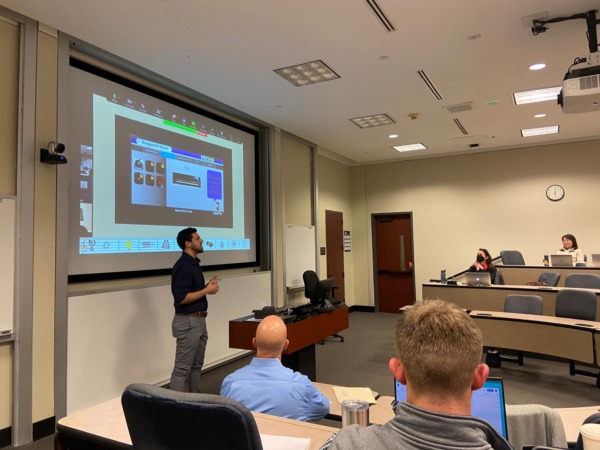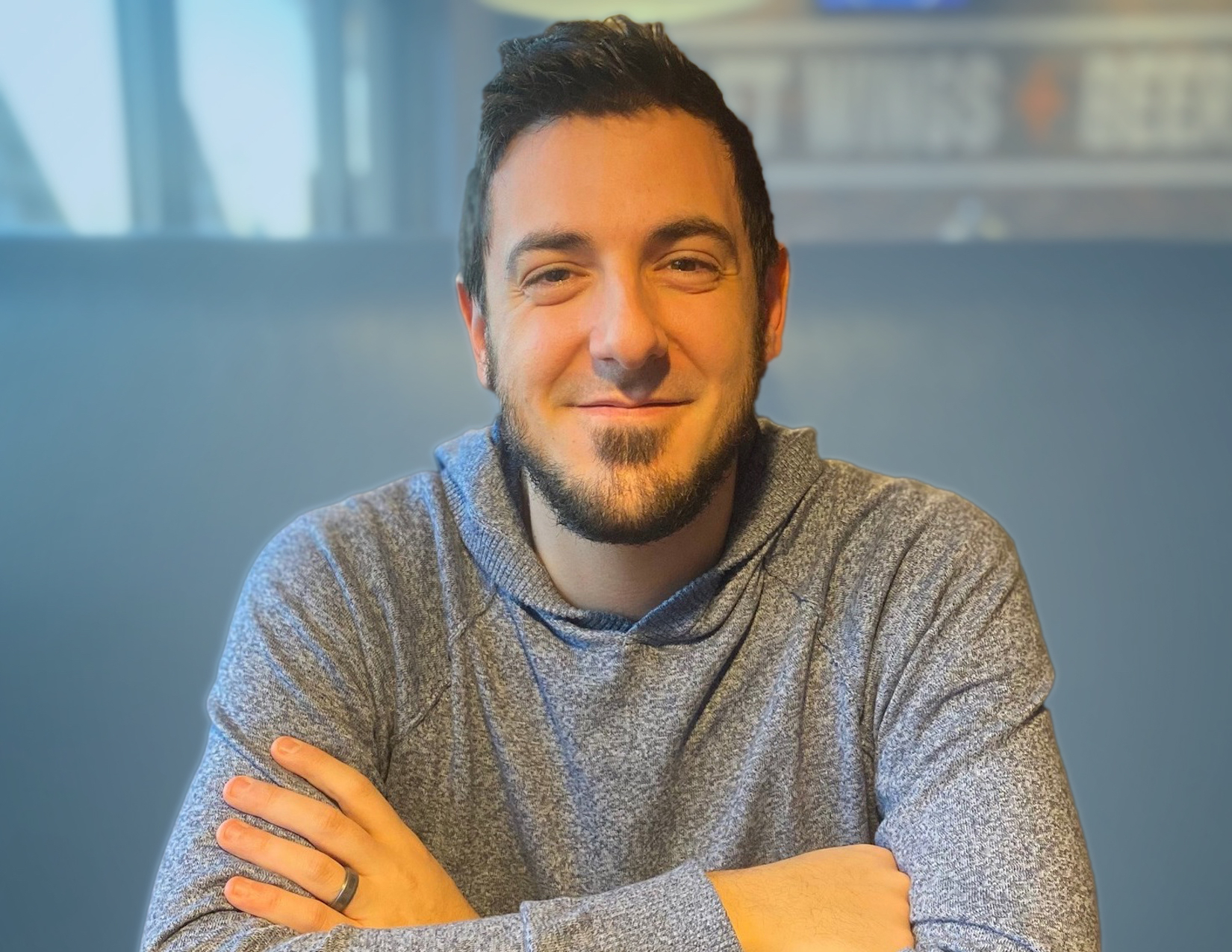Adam Canosa, a music teacher, student in UNC School of Education’s Master of Arts in Educational Innovation, Technology, and Entrepreneurship (MEITE) program, and a Moise A. Khayrallah Innovation Fellow, has always had a passion for music and using it to bring people together and create a love of music in the people around him.
Canosa, who received his bachelor’s degree in music from UNC-Chapel Hill in 2012, has utilized that passion to empower his students at Hillsborough Elementary and foster a sense of community that enables them to enhance their musical skills and build connections with each other.
“Music gives me one of my favorite things about life, which is just being able to engage, to empathize with other people, to put myself in their circumstances and hear their stories,” Canosa said.
After discovering — out of necessity during the pandemic — that technology was a beneficial avenue to make music education more accessible to all students, Canosa took a leap forward in revolutionizing the music learning experience.
As founder and CEO of Algorhythmic Labs, Canosa created Songcraft, a gamified tool designed for educators and students that provides personalized and attainable music instruction.
Songcraft offers a variety of exercises across different musical instruments, genres, and music theory concepts. By using Chromebooks as their instruments, students learn how to read music, perform collaboratively, improve their techniques, and understand music in a fun and engaging way.
“I have a great opportunity to help students develop a love of music,” Canosa said. “I love having the first hand in that and seeing their growth over the years.”
For more than a decade, Canosa has directed his keenness for music into his work as a music teacher in Hillsborough, N.C. Inside the classroom, he continues to develop strategies and methods where students from all backgrounds can learn about music while showcasing their creativity and self-expression.
While teaching music provides him with the space to help students gain knowledge across a range of musical genres and develop a lifelong appreciation for music, he also wants to ensure that all aspects of his curriculum supported the individual learning experiences of his students.
For the past few years, Canosa has refined his curriculum. By utilizing skills garnered in online coding courses, he generated and facilitated the use of an engaging role-playing game to foster music learning solutions for his students.
This first attempt at a digital learning solution gave students the opportunity to design characters, create identities, and progress through a narrative that helped them review music theory concepts and lessons covered during previous classes.
While pursuing ways to effectively engage students and enhance his curriculum, using technology, Canosa, like countless educators, found himself confronted with the difficulties of hands-on teaching in the face of the pandemic in 2020.
Recognizing the challenges students faced in learning and engaging with lessons, Canosa was even more determined to develop a technical solution that would not only address these hardships but also foster sustained engagement and active participation among his students.
“I didn’t have a clear goal in sight,” Canosa said. “But I knew that when kids came back to school, a tech aspect would have to be present if I was going to give them anything that could engage them.”
Equipping learners with equitable music education
After refining his coding and developing his current project, Songcraft, Canosa returned to Carolina in 2022 to pursue his master’s degree in the MEITE program and gain insight into combining his interest in technology and education to foster his entrepreneurial endeavors.
The MEITE program is designed for students pursuing careers in the educational technology industry. The program’s coursework is customized to students’ interests within the fields of learning sciences, educational technology, innovation, and entrepreneurship.

“I’m looking forward to the coursework over this next year to better understand learners and what I could potentially do in my product to make it more efficient and create better outcomes,” said Canosa, a part-time student who will finish the program in the summer of 2024.
“It’s been a workload, but it’s been really exciting,” he said. “Even though I teach six classes in the day, I really relish and look forward to getting in the car and driving down to campus.”
Through the MEITE program, Canosa has sought ways to improve Songcraft and his business, Algorhythmic Labs, to ensure both align with the ever-evolving needs of learners. He is driven by a passion to create a platform that not only imparts knowledge but also fosters creativity within musical instruction.
“I want students to take inspiration from the app and be excited about music,” Canosa said. “It’s been very exciting seeing how this tool erased their COVID learning loss.”
Path toward innovation and inspiration
Utilizing his expertise as a public-school music teacher and the knowledge garnered within the MEITE program, Canosa has been working to secure support for Songcraft while continuing to build meaningful partnerships with educators and education organizations.
“I want it to be viable enough that it could have ongoing support, and a community can be built around it, and schools could utilize this to communicate with each other,” Canosa said
In April 2023, Songcraft was selected to participate in the Discovery Round of the National Science Foundation’s (NSF) Visionary Interdisciplinary Teams Advancing Learning (VITAL) Prize Challenge. Within this challenge, the NSF will provide funding and resources to support small teams and advance emerging technologies and innovations for K-12 learning.
This summer, Canosa made it into the semi-final round of the challenge and earned $20,000. Through August, he will work on further prototyping and refining Songcraft.
In May 2023, Canosa was awarded a $10,000 MICRO grant from the NC IDEA Foundation. Since 2018, NC IDEA Foundation has supported entrepreneurial endeavors in North Carolina by awarding $1.6 million to 162 start-up companies.
Canosa has utilized this grant to contract others to the cause to help with marketing, development, financial modeling, and building out the website in preparation for a piloting the tool across the U.S. during the 2023-24 school year.
By influencing a harmonious balance between digital tools and traditional music teaching methods, Canosa hopes his app continues to create an engaging and immersive learning experience that fosters student connection and a passion for music.
“Music has given me a lot,” Canosa said. “My life’s work has been to unlock a deeper appreciation and love of music for my students.”
